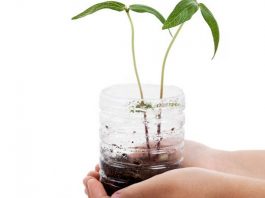Eco-friendly backpacks are a great alternative to traditional backpacks made from non-sustainable materials. Not only do they provide a range of environmental, economic, health, and social benefits, but they also come in a range of styles and functionality to suit different needs and preferences.
Table of Contents
What are eco-friendly backpacks?
Eco-friendly backpacks are bags that are made from sustainable materials and/or produced through environmentally-conscious manufacturing processes. These materials may include recycled plastic, organic cotton, hemp, natural fibers such as jute and bamboo, and vegan leather. Eco-friendly backpacks may also be designed to be long-lasting and durable, reducing the need for frequent replacement and helping to reduce waste.
Why choose eco-friendly backpacks?
There are several reasons to choose eco-friendly backpacks over traditional bags made from non-sustainable materials.
What are the Environmental Benefits of Eco-Friendly Backpacks?
One of the main reasons to choose eco-friendly backpacks is their reduced impact on the environment. Materials such as recycled plastic, organic cotton, and hemp are better for the environment than non-sustainable materials because they require fewer natural resources to produce and generate less waste. The production of these materials also generates fewer greenhouse gases, which contribute to climate change.
Eco-friendly backpacks also help to reduce waste by being designed to last longer and requiring fewer replacements. Traditional backpacks made from non-sustainable materials often need to be replaced after only a few months of use, whereas eco-friendly backpacks are designed to be more durable and can last for years with proper care.
What are the Economic Benefits of Choosing an Eco-Friendly Backpack?
In addition to the environmental benefits, eco-friendly backpacks can also provide economic benefits. One of these is cost savings from reduced replacement frequency. As mentioned earlier, eco-friendly backpacks are designed to be more durable and last longer, so you won’t have to replace them as often. This can save you money in the long run compared to purchasing multiple traditional backpacks over a shorter period of time.
Eco-friendly backpacks can also support small and local businesses. Many eco-friendly brands are small, independent companies that prioritize sustainability and ethical practices. By purchasing from these companies, you can help to support their efforts and contribute to a more sustainable economy.
What are the Health Benefits of Using an Eco-Friendly Backpack?
Eco-friendly backpacks can also provide health benefits by reducing toxic chemical exposure. Traditional backpacks made from synthetic materials may contain chemicals that can be harmful to humans, such as phthalates and PVC. These chemicals can leach out of the materials over time and be inhaled or absorbed through the skin, leading to a range of health problems. Eco-friendly backpacks made from natural materials do not contain these harmful chemicals, making them a safer choice.
In addition, eco-friendly backpacks can help to improve air and water quality. The production of non-sustainable materials, such as synthetic fabrics and leather, often generates pollution in the form of chemicals and other waste products. This pollution can contaminate the air and water, leading to health problems for both humans and the environment. Eco-friendly backpacks, on the other hand, are produced with environmentally-conscious manufacturing processes that minimize pollution and waste.
What are the Social Benefits of Eco-Friendly Backpacks?
Eco-friendly backpacks can also provide social benefits by supporting ethical labor practices. Many traditional backpacks are produced in developing countries, where labor laws and standards may not be strictly enforced. Eco-friendly brands, on the other hand, often prioritize fair labor practices and may be more transparent about their supply chain. By purchasing eco-friendly backpacks, you can support companies that prioritize the ethical treatment of their workers.
Eco-friendly backpacks can also promote sustainable living and environmental conservation. By using eco-friendly products, you can demonstrate your commitment to sustainability and encourage others to do the same. This can help to raise awareness about the importance of sustainability and encourage more people to make environmentally-conscious choices in their everyday lives.
What are the Different Types of Sustainable Materials Used in Eco-Friendly Backpacks?
There are several sustainable materials that are commonly used in the production of eco-friendly backpacks. Here are some of the most popular options:
- Recycled plastic: Many eco-friendly backpacks are made from recycled plastic, which helps to reduce waste and decrease the demand for new plastic production. Recycled plastic is often just as durable as traditional plastic, but has a lower environmental impact.
- Organic cotton: Backpacks made from organic cotton are environmentally friendly because they are grown without the use of synthetic fertilizers or pesticides. This means that they have a smaller carbon footprint and are less harmful to the environment and to the people who grow and harvest the cotton.
- Hemp: Hemp is a sustainable material that is often used in the production of eco-friendly backpacks. It is durable, strong, and grows quickly without the need for chemical fertilizers or pesticides. Hemp is also a more sustainable alternative to traditional cotton because it requires less water to grow and has a higher yield per acre.
- Natural fibers: Other natural fibers such as jute, bamboo, and linen are also commonly used in the production of eco-friendly backpacks. These fibers are renewable and biodegradable, making them more sustainable than synthetic fibers.
- Vegan leather: Some eco-friendly backpacks are made from vegan leather, which is a synthetic material that looks and feels like leather but is made without the use of animal products. Vegan leather is a more sustainable alternative to traditional leather because it does not require the use of animal hides and does not contribute to the environmental impacts of the animal agriculture industry.
 Advantages of using sustainable materials in backpacks
Advantages of using sustainable materials in backpacks
In addition to the environmental, economic, health, and social benefits outlined above, there are several other advantages to using sustainable materials in backpacks.
Durability and longevity: Many eco-friendly backpacks are designed to be long-lasting and durable, so they don’t need to be replaced as frequently, which helps reduce waste. This means that you can get more value for your money by investing in a high-quality eco-friendly backpack that will last for years.
Ethical concerns: Eco-friendly backpacks are often made with ethical practices in mind, such as fair labor standards and animal welfare. This means that you can feel good about your purchase knowing that it is supporting companies that prioritize these values.
 Disadvantages of using sustainable materials in backpacks
Disadvantages of using sustainable materials in backpacks
There are also a few disadvantages to consider when it comes to using sustainable materials in backpacks.
- Cost: One of the main disadvantages of eco-friendly backpacks is that they can be more expensive than traditional bags made from non-sustainable materials. This is because sustainable materials often cost more to produce and eco-friendly brands may prioritize fair labor practices, which can drive up the price. However, the long-term cost savings from reduced replacement frequency can help to offset this initial cost.
- Limited availability: Another disadvantage of eco-friendly backpacks is that they may not be as widely available as traditional bags. This can make it more difficult to find the perfect eco-friendly backpack to suit your needs. However, the popularity of eco-friendly products is on the rise, so it is becoming easier to find a wider range of options.
- Performance: Some people may also be concerned about the performance of eco-friendly backpacks, such as their water


